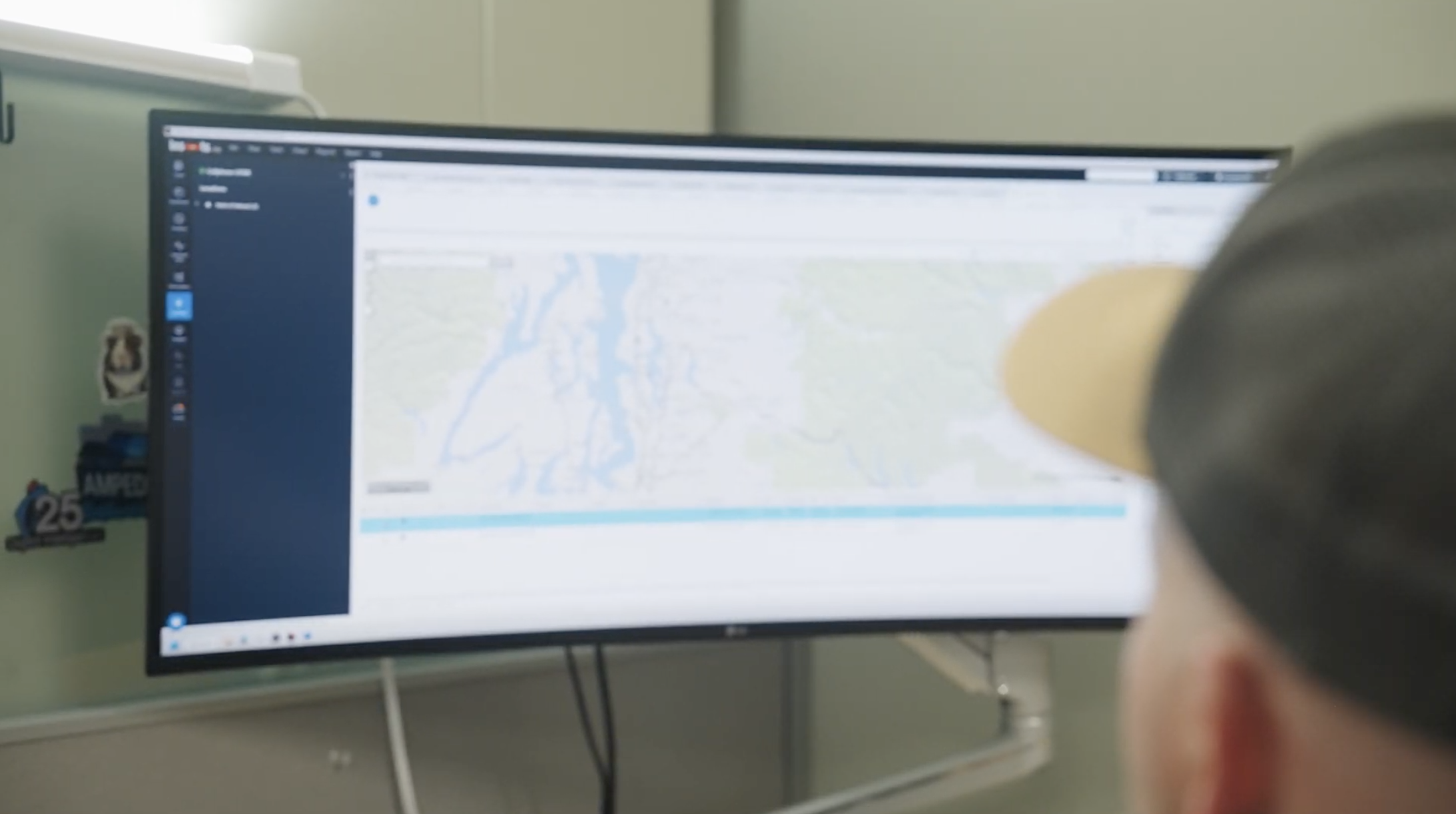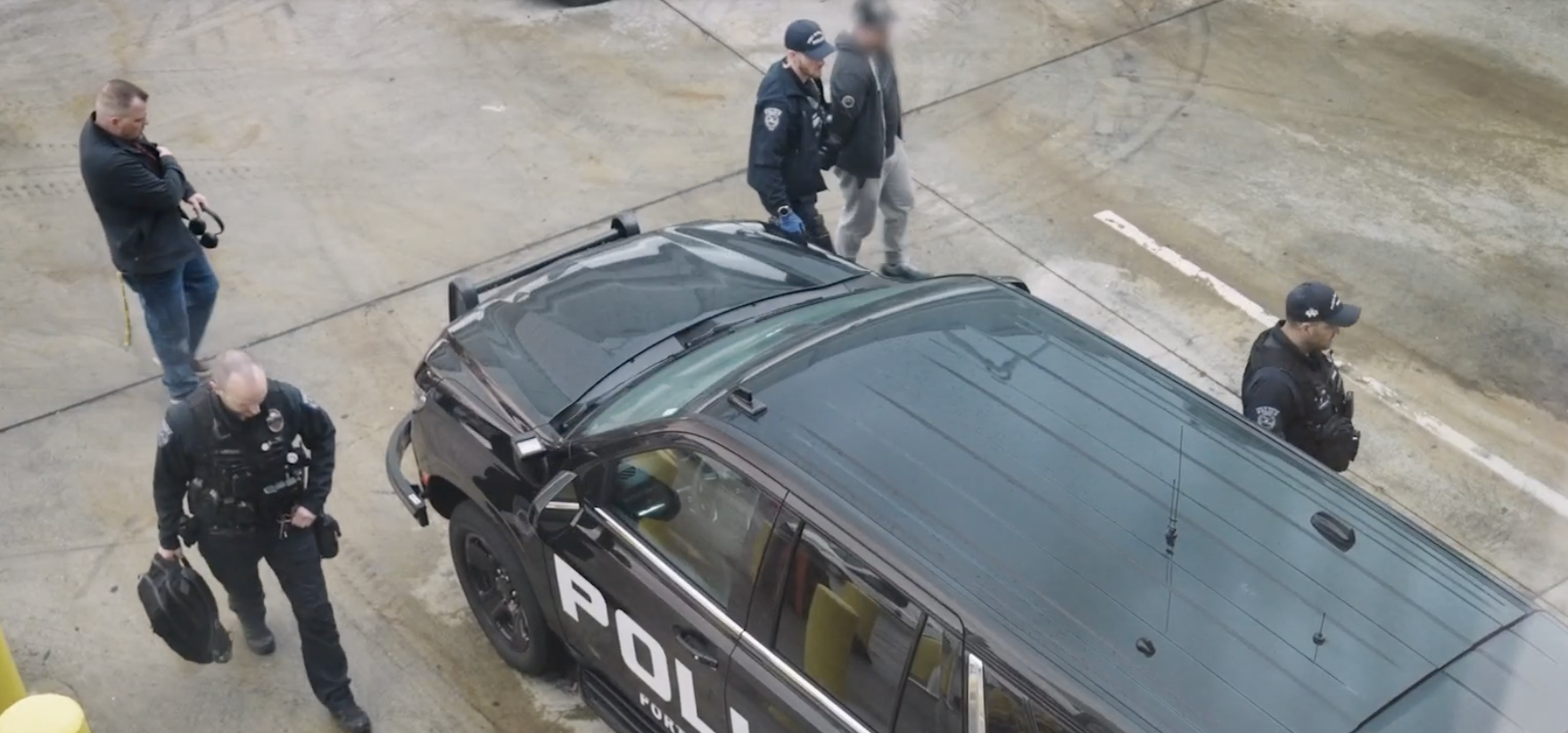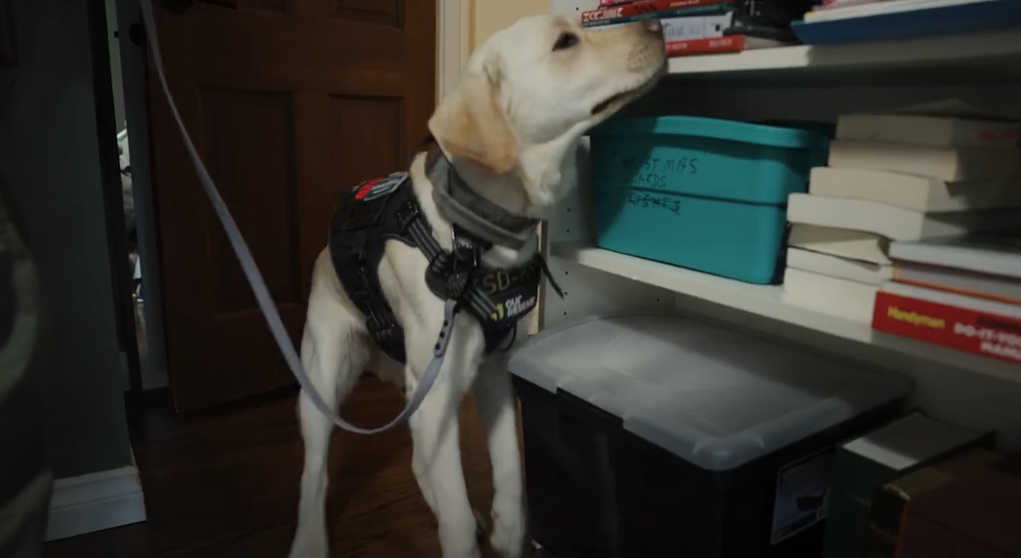
‘Horrific Content:’ Washington ICAC Rescues 4-Year-Old, Arrests Suspected Child Predator at Airport
In Seattle, early on a spring morning in a briefing room, the Internet Crimes Against Children (ICAC) Task Force prepares to arrest a suspected child predator and serve a search warrant.
“Here’s our gentleman born in ‘87, so he’s 37 years old,” a lead operative says to the briefing room, packed with investigators from the Washington Internet Crimes Against Children (ICAC) Task Force and the FBI. “Right now, we have probable cause for dealing in depictions 1 and possession (of child sexual abuse). The suspect is flying in from Hawaii right now.”
 “It started off as a priority one cyber tip that came in from NCMEC,” said Detective Sergeant Sean Martinell with Seattle police, who is also a supervisor at Washington ICAC. “It was horrific content. We rescued a 4-year-old child, and from that investigation—the importance of the forensics in the lab—we located more communications, people talking about offending in the same way. The warrant that we’re doing here in Seattle is an offshoot of that investigation.”
“It started off as a priority one cyber tip that came in from NCMEC,” said Detective Sergeant Sean Martinell with Seattle police, who is also a supervisor at Washington ICAC. “It was horrific content. We rescued a 4-year-old child, and from that investigation—the importance of the forensics in the lab—we located more communications, people talking about offending in the same way. The warrant that we’re doing here in Seattle is an offshoot of that investigation.”
“Digital evidence is the Holy Grail for ICAC investigations,” said Lt. Ben Morrison, the Washington ICAC Commander. “It’s my understanding that because of ICAC, these companies and technologies exist. They were designed and created to assist ICACs in their work that evidence is everything to making these cases, to identifying victims, to rescuing the victims. We couldn’t do this work without that technology.”
The team doesn’t know everything about the target they are about to take off the plane, but they have a good deal of evidence already.
“We have communications, we have some photos that were shared and an IP address, and then we’re going to find what we find,” Martinell said. “We’re working in coordination with the Port of Seattle Police, and we’ll take him when they land, and we’ll go on the airplane and grab him so that we know that nobody’s armed and it’s the safest way that we can do it.”
 As soon as the plane arrived at the gate, the suspect came off the plane without incident. The ICAC Task Force members walked him down the stairs and straight to a patrol car, then moved him over to an interview room where he’s meeting with a couple detectives.
As soon as the plane arrived at the gate, the suspect came off the plane without incident. The ICAC Task Force members walked him down the stairs and straight to a patrol car, then moved him over to an interview room where he’s meeting with a couple detectives.”
In the meantime, a different crew is at the target’s residence, serving a search warrant to begin looking for any digital evidence that could piece together this case.
“Our tactical team served the warrant here and now we’re here with the search and interview teams to go through and make sure we find all the evidence that we need,” Martinell explained. “We have our forensics team going through the devices right now. We do a lot of on-site triage.”
A key member of the team is Nala, one of the Task Force’s Electronic Storage Detection (ESD) K9s, and her handler is Detective Daljit Gill. “She’s been deployed on over 150 warrants and probably about 60% of the warrants we have found devices that were overlooked or hidden,” Gill said.
Nala was donated by Our Rescue, a non-profit dedicated to helping investigators who work crimes against children cases.
 “Our Rescue is a global nonprofit. We are on a mission to end Child Exploitation and sex trafficking,” said Derek Benner, Our Rescue CEO. “One of the ways we do that is through the electronic storage device K9 programs. This resource is an invaluable way to support law enforcement as they conduct enforcement operations, and searching for those tiny storage devices that violators use to store CSAM (child sexual abuse material) or other digital evidence.”
“Our Rescue is a global nonprofit. We are on a mission to end Child Exploitation and sex trafficking,” said Derek Benner, Our Rescue CEO. “One of the ways we do that is through the electronic storage device K9 programs. This resource is an invaluable way to support law enforcement as they conduct enforcement operations, and searching for those tiny storage devices that violators use to store CSAM (child sexual abuse material) or other digital evidence.”
Our Rescue’s Vice President of Mission John Trenary adds, “And that could be just about anywhere you could put a dime. So having these dogs that have the ability to do what we just can’t understand or comprehend as human beings to find these hidden storage is incredibly valuable. As a digital forensics analyst, I can’t examine evidence that is goes undetected.”
“There are a lot of technology gaps, there’s a lot of budget gaps around obtaining the necessary technology to go after the predators. So we’re looking for those opportunities to help fund the equipment, the training and support the law enforcement efforts that way,” said Benner.
“Once we go and we do the residential warrant and we pull all of these devices, it’s an impressive amount of work that they do to get the evidence and make it so we can actually prosecute this,” Martinell said.
“There are so many cases and so much desire to meet all the expectations with those investigations,” Morrison said. “So any tools that make the examiners investigators jobs easier is of tremendous benefit to any ICAC.”
“Getting and staying abreast of new technology is a challenge that we all face, and we rely on our partners such as Cellebrite in order for the investigators and forensic examiners to be able to do their jobs to identify and arrest the predators that they’re looking for,” said Kelly Crouch, Seattle Police and Washington ICAC Strategic Advisor.
The suspect is charged in King County Court with Dealing in Depictions of a Minor Engaged in Sexually Explicit Conduct in the First Degree and Possession of Depictions of a Minor Engaged in Sexually Explicit Conduct in the First Degree. The case is ongoing.